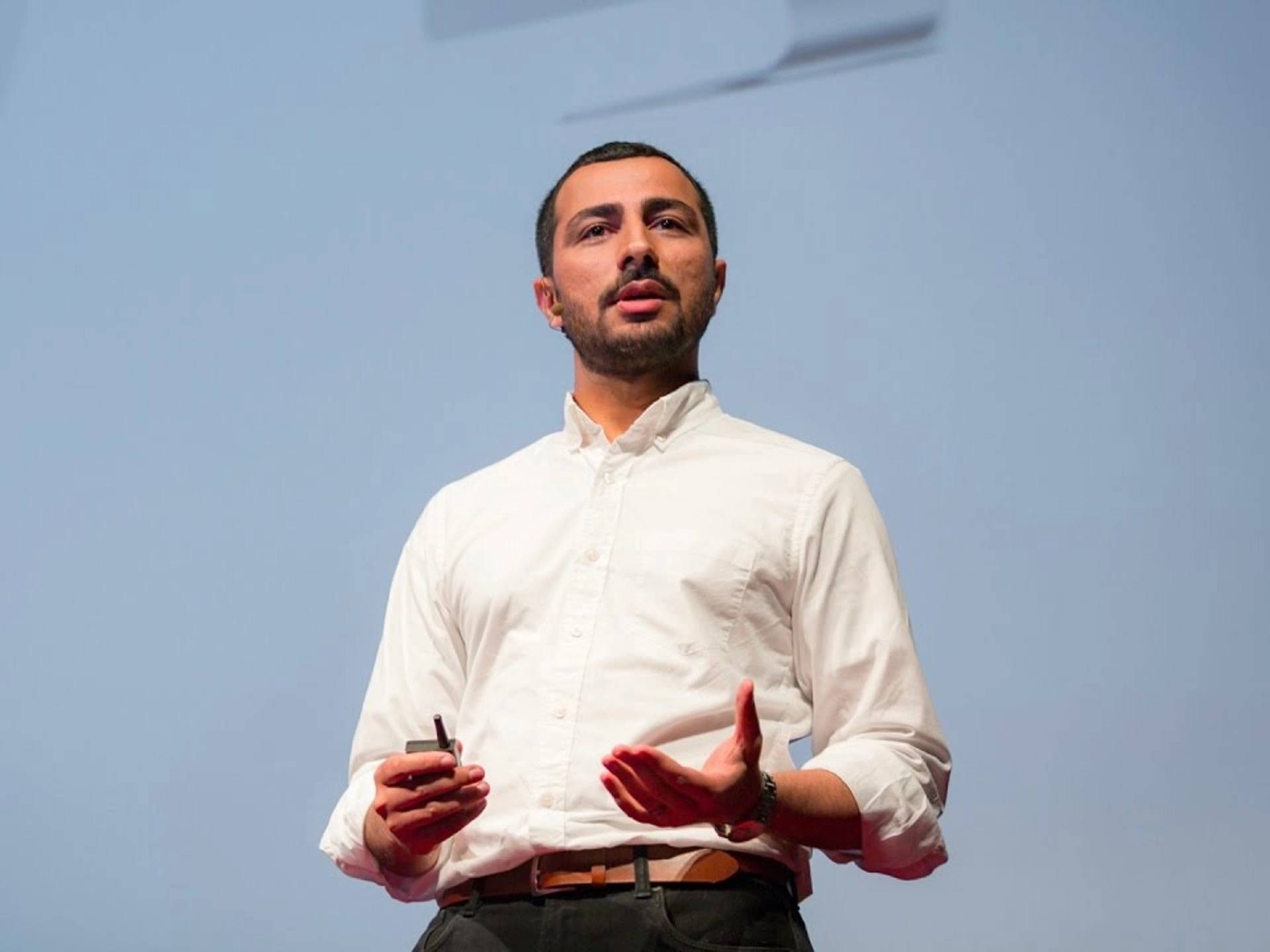위키 구독하기
Share wiki
Bookmark
Muneeb Ali
0%
Muneeb Ali
무니브 알리는 컴퓨터 과학자이자 기업가로, 비트코인에 고정된 스마트 계약 및 애플리케이션을 가능하게 하는 플랫폼인 스택스의 CEO를 맡고 있습니다. 그는 비트코인 관련 인프라와 프로그래밍 기능 및 사용자 제어를 향상시키는 분산 시스템 구축에 주력해 왔습니다. [13]
교육
알리는 2003년 라호르 경영과학대학교에서 컴퓨터 과학 및 수학 학사 학위를 받았습니다. 이후 2011년 프린스턴 대학교에서 컴퓨터 과학 석사 학위를 받았습니다. 2014년에는 기업가 정신에 집중하여 Y Combinator의 2014년 여름 배치에 참여했습니다. 그 후 2017년 프린스턴 대학교에서 컴퓨터 과학 박사 학위를 취득했습니다. [2]
경력
알리는 2005년 스웨덴 RISE 연구소(SICS)의 방문 연구원으로 연구 경력을 시작했습니다. 이후 2006년부터 2008년까지 델프트 공과대학교에서 연구원으로 근무했으며 2007년에는 스탠포드 대학교의 방문 연구원이었습니다. 2008년부터 2010년까지 프린스턴 대학교에서 연구 조교로 일했습니다. 2011년부터 2017년까지 알리는 프린스턴 대학교에서 컴퓨터 과학 박사 연구를 수행했으며, 그곳에서 네트워크 및 시스템 그룹에서 일하고 PlanetLab 팀과 협력하여 2017년에 박사 학위를 마쳤습니다. 이 기간 동안 그는 Onename을 공동 창립하고 2014년부터 2016년까지 CTO로 재직하면서 초기 비트코인 기반 분산 명명 및 ID 애플리케이션 개발에 기여했습니다. 2017년 알리는 비트코인에 고정된 스마트 계약 및 애플리케이션을 가능하게 하는 데 중점을 둔 블록체인 프로젝트인 스택스를 설립했습니다. 그는 또한 같은 해에 Hiro Systems의 이사가 되어 비트코인 및 스택스 개발자를 위한 도구 개발을 지원했습니다. 2022년에는 Trust Machines의 관리 파트너 역할을 맡아 비트코인 및 스택스 생태계에 구축된 애플리케이션을 인큐베이팅하고 투자했습니다. [3]
인터뷰
스택스 구축
The Leather Lounge 팟캐스트에서 2025년 6월 인터뷰에서 알리는 SIP-31과 같은 프로토콜 업그레이드와 비트코인 관련 애플리케이션의 유용성, 운영 효율성 및 광범위한 참여에 미치는 영향을 포함하여 스택스 생태계 내의 최근 개발에 대해 논의했습니다. 그는 프로토콜 설계, 기관의 관심 및 생태계 성장 간의 관계를 언급하면서 프로젝트의 장기 목표를 다루었습니다. 알리는 또한 리더십에 대한 자신의 접근 방식에 대해 성찰하면서 속도 조절, 지속 가능성 및 시장 상황과의 조화를 강조하고 작업량 관리, 정신 건강 유지 및 생산성 향상과 관련된 개인적인 관행을 설명했습니다. 대화는 또한 비트코인과 인공 지능의 교차점에 대한 그의 관심과 직업적 책임과 성찰 및 업무 외 활동을 위한 시간의 균형의 중요성에 대해 언급했습니다. [12]
다음 DeFi 붐
Coinage에서 2025년 5월 인터뷰에서 알리는 스택스 생태계의 성장에 대해 논의하면서 네트워크에 투입된 비트코인 자본의 초기 증가와 실험에서 프로토콜 수익 창출 및 STX 보유자를 위한 더 명확한 가치 축적으로의 전환을 언급했습니다. 그는 Nakamoto 업그레이드 및 스택스에 대한 분산형 비트코인 자산 도입과 같은 기술 개발과 비트코인 기반 DeFi 사용 사례를 확장하고 다른 블록체인 생태계에서 참가자를 유치하기 위한 노력을 다루었습니다. 알리는 또한 토큰 경제, 미국의 규제 환경 및 스택스의 합의 기반 비트코인 수익률과 다른 비트코인 수익률 전략 간의 차이점에 대해 언급하면서 장기적이고 점진적인 성장과 분산화와 운영 효율성 간의 균형을 강조했습니다. [14]
프레젠테이션
엔진으로서의 DAT
2025년 10월 싱가포르 TOKEN2049 프레젠테이션에서 알리는 비트코인 재무 회사의 부상과 대차 대조표에 비트코인을 보유한 상장된 차량을 통해 비트코인을 전통적인 금융 시장에 연결하는 데 있어 그들의 역할에 대해 논의했습니다. 그는 MicroStrategy와 같은 회사가 자본 시장 도구를 사용하여 비트코인 노출을 확장하여 기관 수요가 진화함에 따라 수익률을 제공하기 위한 경쟁과 압력이 증가했다고 설명했습니다. 알리는 이 역학이 수익률을 제공하는 암호화폐 자산과 경쟁하고 통합 위험에 직면함에 따라 비트코인 보유 회사에 전략적 과제를 어떻게 만들었는지 조사했습니다. 그는 또한 스택스와 같은 비트코인 레이어 2 시스템이 프로그래밍 기능과 비트코인으로 표시된 수익률을 어떻게 가능하게 하는지 설명하면서 이러한 개발을 비트코인 생태계 내에서 더 복잡한 금융 활동과 개발자 참여로의 광범위한 전환의 일부로 구성했습니다. [15]
2025년 스택스
Building On Bitcoin에서 2025년 5월 프레젠테이션에서 알리는 장기 자산으로서의 비트코인의 위치와 지속적인 개발을 지원하는 비트코인 레이어 2 시스템의 역할에 대해 논의했습니다. 그는 비트코인이 다른 블록체인 플랫폼과 점점 더 차별화되었다는 핵심 견해를 설명하면서도 보안이나 유용성을 손상시키지 않고 비트코인을 프로그래밍 가능하게 만드는 데 관련된 기술적 과제를 언급했습니다. 알리는 자체 보관 비트코인 관리 개선, 정의된 조건 하에서 비트코인을 직접 제어하는 스마트 계약 활성화 및 더 빠른 결제 사용 사례 지원을 목표로 하는 스택스 생태계 내의 향후 기술 변경 사항을 설명했습니다. 그는 또한 기관 참여, 생태계 확장성 및 운영 효율성에 대한 이러한 개발의 관련성과 스택스 네트워크의 용량, 안정성 및 전반적인 기능을 확장하기 위한 장기 계획의 미리보기를 다루었습니다. [16]
스택스 L2의 역할
2025년 5월 두바이 TOKEN2049에서 알리는 대안적인 암호화폐 프로젝트의 성장에도 불구하고 지속적인 시장 지배력을 언급하면서 비트코인의 지속적인 관련성과 개발자들의 새로운 관심에 대해 이야기했습니다. 그는 단순성과 보안을 유지하면서 분산형 애플리케이션을 위해 비트코인을 프로그래밍 가능하게 만들기 위한 노력에 대해 논의하고 비트코인에 효과적인 레이어 2 시스템을 구축하는 데 관련된 과제를 설명했습니다. 알리는 비트코인의 보안에 고정된 더 빠른 레이어 2 트랜잭션 처리와 더 효율적인 트랜잭션을 위해 설계된 비트코인 지원 레이어 2 자산 도입을 포함한 최근 기술 개발을 언급했습니다. 그는 또한 비트코인 기반 애플리케이션의 더 넓은 시장 잠재력, 오픈 소스 참여 및 분산형 검증의 역할, 비트코인 레이어 2 생태계의 유용성과 성능을 개선하기 위한 지속적인 연구를 다루었습니다. [11]
잘못된 내용이 있나요?
